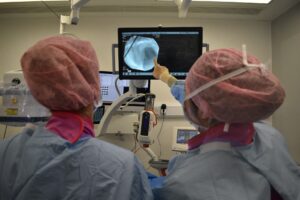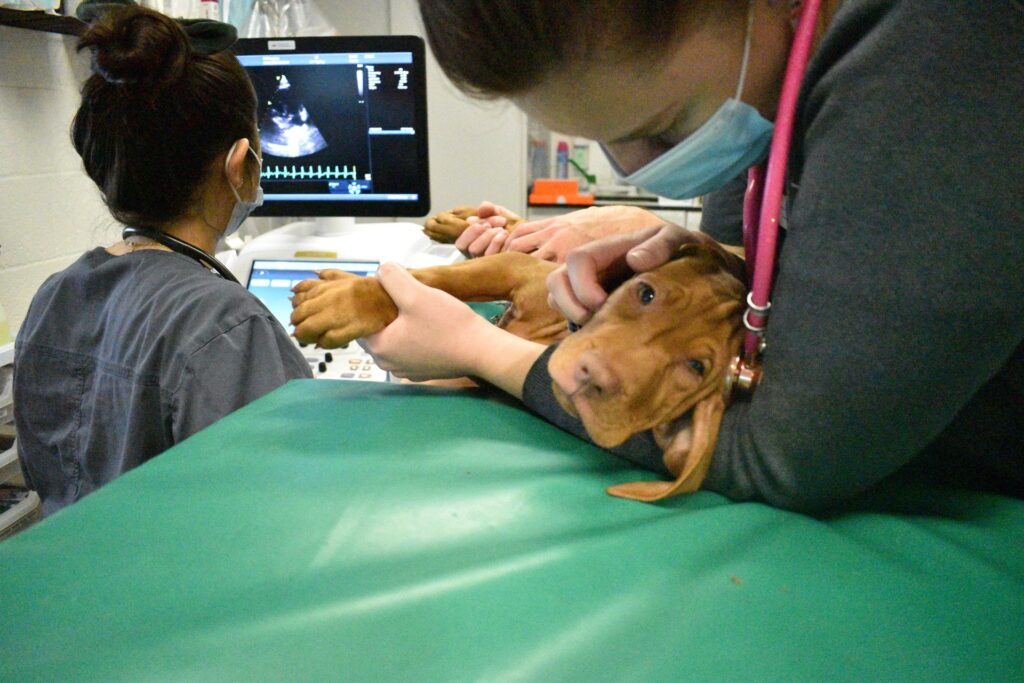The Cardiology service investigates and provides medical and surgical care for animals with disease of the heart and blood vessels.
Pets with heart conditions may display a range of clinical signs including difficulty in breathing, fainting, exercise intolerance and heart murmurs. If your veterinary surgeon suspects heart disease, he/she may recommend that your pet be seen by a Specialist for diagnosis.
The Cardiology service is run by Anne Kurosawa and Hayley McDonald with the support of Coleen Berry who is the Cardiology Nurse. Anne and Hayley are Board-certified Cardiologists and are American and European Specialists in Veterinary Cardiology.
Pets with all types of heart conditions are referred to our Cardiology service. The most common include heart murmurs, weakness or collapse, irregular heart rhythm and difficulties breathing. We understand that it can be worrying to learn that your pet has a heart problem. Fortunately, not all heart diseases are serious, so it is essential to perform a thorough investigation to determine the appropriate diagnosis.
What can I expect if my pet is referred to the Cardiology team (non-urgent, routine referral)?
During the first visit to the Cardiology service, we will start with a consultation and discussion with you as the pet owner so that we can choose the most appropriate diagnostic test to investigate the cause of the signs. Most diagnostic tests (i.e. echocardiogram, blood pressure evaluation, Holter monitor and radiographs) can be performed on the same day.
Diagnostic tests offered by our Cardiology service include:
- GE Vivid E95 2D and 4D Transthoracic and Transoesophageal Echocardiography
- 6-lead or 12-lead Electrocardiography (ECG)
- 24 hour Ambulatory ECG (Holter monitor)
- Implantable Loop Recorder
- Cardioversion
- Doppler Blood Pressure evaluation
- Digital Fluoroscopic Angiography
- Digital Radiography
- Multi-slice CT (including CT angiography)
What are common heart conditions in cats and dogs?
- Myxomatous mitral valve disease
- Dilated cardiomyopathy
- Hypertrophic cardiomyopathy
- Patent ductus arteriosus
- Pulmonic stenosis
- Pericardial effusion
- Pacemaker implantation
Please visit our Additional Information page for more details. Also, please remember that your consultant will be happy to answer any further questions you may have.


Placement of a Amplatz Canine Duct Occluder (ACDO) (which remains in place for life) for a puppy with a Patent Ductus Arteriosus - A condition where the opening between the two major blood vessels leading from the heart fails to close after birth - If a PDA isn’t closed then the dog will experience heart failure as the heart gets bigger and this is usually before a year old)

The puppy is being scanned for an investigation of a puppy murmur.


